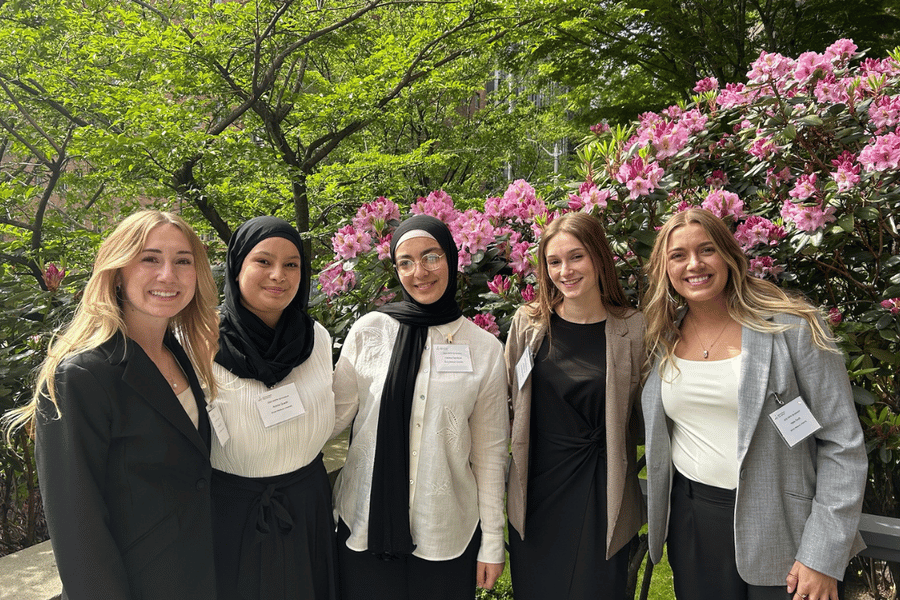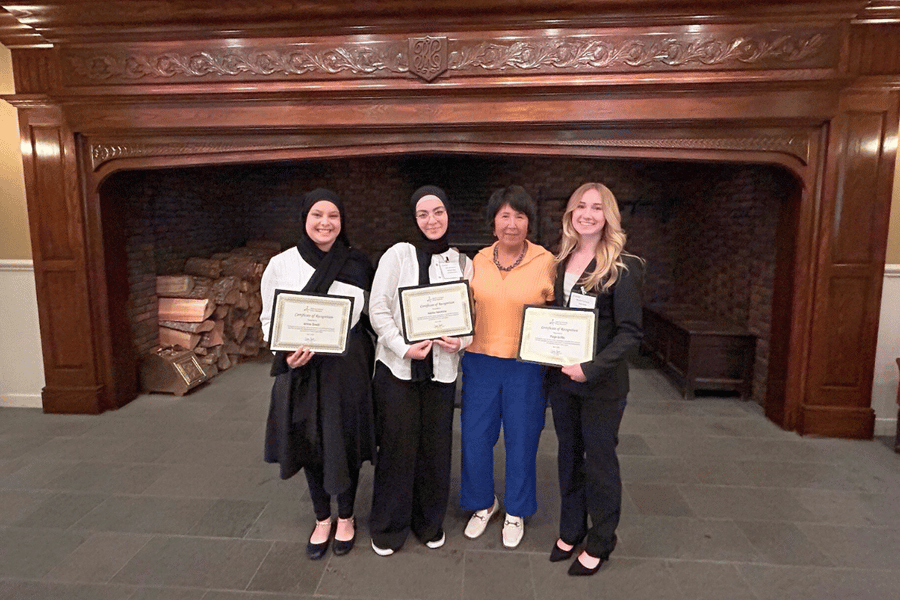BLOOMINGTON — The largest single cohort of student researchers selected to present at the recent National Science to Policy Network (NSPN) Symposium earlier this month were Illinois Wesleyan Titans.
Habiba Hamitova '28, Amina Quadri '28, Paige Griffin '26, Halle Smith '26 and Cadence Crull '27 attended the

conference in Seattle. The trip was organized through IWU’s Science to Policy Network registered student organization, led by Joelle McMillan '25. Students had the chance to network and hear from leaders in the technology, science and policy spaces, while exploring global challenges like climate change, public health and privacy.
The three presenters — Griffin, Hamitova and Quadri — accounted for a quarter of the
students accepted to present research at the conference. Quadri said being part of
that representation felt empowering.
“It made me proud to be part of a university that values student research and encourages
us to participate in conversations that matter on a larger scale,” she said.
As a data science major, Quadri said her involvement with the Science to Policy Network RSO on campus has allowed her to connect science with real-world policy, showing how her academic interests can lead to meaningful change beyond the classroom.
Quadri presented her own research focusing on the intersection of public health and climate change policy.
“I explored how climate change exacerbates health issues such as heat-related illnesses, air pollution and the spread of vector-borne diseases and how policy can address these through climate-resilient healthcare systems and equitable interventions,” she said.
Griffin, who is majoring in data science and environmental studies, shared her research in a presentation titled, “The Erosion Crisis: Incentives for Sustainable Agriculture and Dust Storm Prevention.”

“The focus was on the growing threat of dust storms in Illinois, discussing the issue of soil erosion, how it occurs and prevention practices,” she said.
A highlight of the conference for Griffin was hearing remarks from Washington State
politicians Sen. Vandana Slatter and Rep. Debra Lekanoff, who reiterated the importance
of science in politics, which Griffin said gave her a sense of pride in her efforts
and research.
“This experience has lit a new fire within me. It has motivated me to continue to
work on my research, especially with another recent dust storm event happening in
Chicago and the surrounding area. I am very grateful to have been a part of this year’s
NSPN Symposium and hope to become more involved in the organization,” said Griffin.
Smith, who is studying behavioral neuroscience, said attending the conference was a helpful reminder that student researchers can contribute to policy changes through out-of-the-box thinking, even when it feels daunting. She hopes to bring that energy back to campus to embolden other students to seek change to improve society.
“We are likely less stuck than we believe we are when trying to make change and a difference,” said Smith. “We have to just think, do, communicate with others and use personal passion as a motivator.”